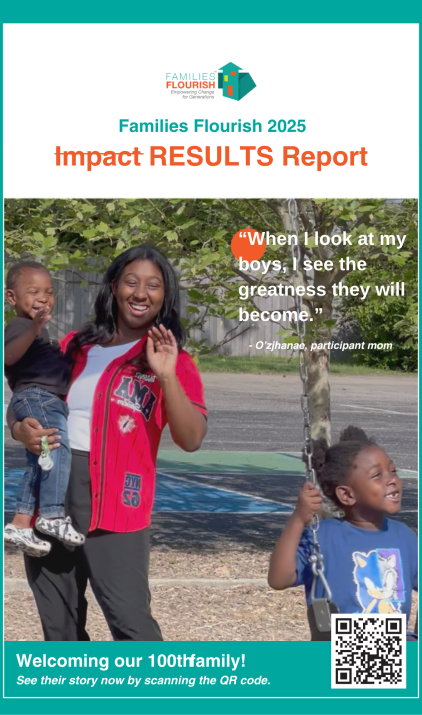Did you know Columbus is the second most economically segregated city in the country after Austin, TX? That’s what researcher Richard Florida found.
That means right around the corner from your house and mine, a family is living one two ZIP codes away from a RADICALLY different set of life outcomes.
MTP is based on the work of Harvard’s Raj Chetty. And his work shows that the SINGLE most important choice a parent can make is the neighborhood in which they choose to raise their families. Read it in The Atlantic (with subscription) or read the abbreviated version here.
Not everyone has the economic stability to make that choice of a neighborhood. Rents are rising and paychecks aren’t keeping up.
Families Flourish gives families access to Central Ohio’s neighborhoods that have lower crime rates, more grocery stores, more jobs, sidewalks and green spaces and higher-resourced schools.
According to Chetty, the hyperlocal difference in these ZIP codes means that moving from a low opportunity area to a high opportunity one—even within the same general radius—can have a dramatic impact on outcomes, in particular, lifetime wages. “The childhood years drive changes and outcomes in the long run. Every extra year of exposure to a better environment, and the earlier you move to that better neighborhood, the better you do.”
Support matters: As demonstrated with a successful housing voucher project he helped implement in Seattle, Chetty said working with local authorities on providing additional resources for families—search assistance, engagement with landlords, and short-term financial assistance—led to far greater mobility for those trying to move out of concentrated poverty. It was also an example of how investments in social capital—the “it takes a village” philosophy of receiving help from others—is an important catalyst for opportunity outcomes.

